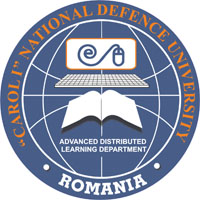FEEDBACK REGARDING THE EFFICIENCY OF THE MOODLE PLATFORM AS A COMPLEMENTARY TEACHING TOOL
FEEDBACK REGARDING THE EFFICIENCY OF THE MOODLE PLATFORM AS A COMPLEMENTARY TEACHING TOOL
Author(s): Sorina Chircu, Ioana PorumbSubject(s): Education
Published by: Carol I National Defence University Publishing House
Keywords: Moodle platform; e-learning efficiency; teaching activity
Summary/Abstract: Well-known as a learning management system, Moodle complements the instructive-educational process by providing it with an online component. The philosophy that started Moodle includes a social-constructivist approach to education, emphasizing the fact that students and not only teachers can bring their value to the educational experience. By applying these pedagogical principles Moodle offers a flexible environment for learning communities. Politehnica University of Bucharest is composed at present of 15 faculties, each having their own Moodle instance. The Moodle platform allows teachers to view the contribution of every student, allowing them to grade them according to their contribution, to intervene and correct wrong information or to lead the conversation in the direction desired by teachers. The present paper aims to identify the degree of efficiency of the Moodle platform from the perspective of teachers, as users, in complementing the teaching activity and improving learning among students. In order to achieve this goal, we will analyse 2 levels of progressive evaluation for the measurement of the e-learning efficiency which are: level 1 - reaction (measures what the attendants believe about the e-learning platform in general), level 2 - learning (measures what is effectively learnt). From the perspective of these 2 levels we are interested to see: What is the opinion of teachers regarding the various features of the Moodle LMS? How is learning assured on the platform judging by the content and interactivity offered to students? The research was realized on a lot of 150 teachers from Politehnica University of Bucharest and we have used as research methods the case study and the survey. The obtained results indicate that the Moodle platform represents an efficient complementary component in teaching and evaluation.
Journal: Conference proceedings of »eLearning and Software for Education« (eLSE)
- Issue Year: 11/2015
- Issue No: 02
- Page Range: 289-294
- Page Count: 6

